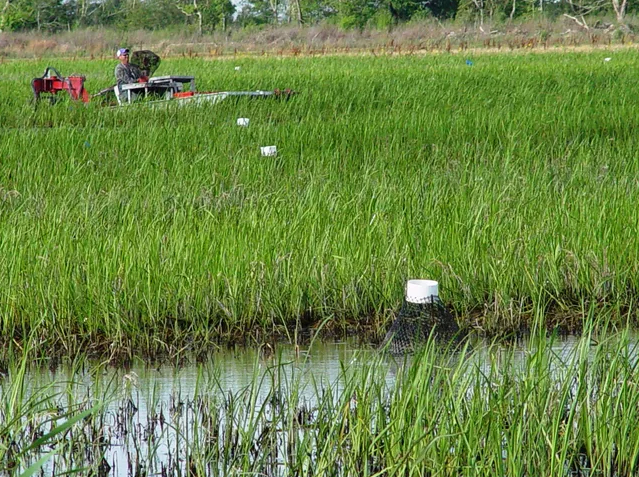May 27, 2025 | 18:44 GMT +7
May 27, 2025 | 18:44 GMT +7
Hotline: 0913.378.918
May 27, 2025 | 18:44 GMT +7
Hotline: 0913.378.918

Aquaculture and rice farming have been shown to work well together in countries including the US and China.
The JM Kaplan Fund awards the Prize biennially to 10 innovators in the fields of social justice, the environment, and heritage conservation. Awardees will each receive a total of $175,000 over three years and join a learning collaborative designed to support them through the challenges of a startup organisation.
“Fish in the Fields provides a model for both significantly reducing the methane output associated with rice cultivation and adding new revenue streams for producers,” said Justin Goldblach, JMK Innovation Prize program director. “Like their fellow Prize awardees, they’re poised to reshape our world to be more sustainable and equitable. We are thrilled to support them on that journey over the coming years.”
The JMK Innovation Prize is designed to support nonprofits and entrepreneurs tackling America’s most pressing challenges through social and environmental innovation—focusing in particular on pilot projects, new organisations, or nascent initiatives that involve a certain amount of measured risk, but which may ultimately lead to large-scale, transformative results. This year’s awardees were selected from among 3,209 applications, by far the most participation in the Prize since its inception in 2015.
Rice is a vital global crop, feeding half of the world’s population every day. Conventional rice harvesting is also responsible for more than 10 percent of global emissions of methane, a greenhouse gas 86 times more potent than carbon dioxide
Conceived by researchers at the Resource Renewal Institute (RRI) in California, Fish in the Fields is addressing this issue by alternating rice agriculture with aquaculture, introducing fish into winter flooded rice fields.
“When you introduce small fish into these flooded rice fields in the winter, they naturally reduce the methane emissions by two-thirds,” states RRI president Deborah Moskowitz.
Launched with rice farmers in Arkansas during a three-year, 140-acre controlled study, this project harnesses natural systems to improve the sustainability of rice production, as well as retaining and restoring a habitat for migratory birds. Fish in the Fields also introduces another essential food source and an economic benefit for farmers.
“The fish that are introduced can actually be harvested when the fields are drained in the spring,” notes Chance Cutrano, director of programs at RRI. “That offers a second product, essentially giving farmers more yield per field.”
As Cutrano notes, this initiative is rooted in an age-old practice, rediscovered and refined with the help of technology and a heightened commitment to figuring out how to live better on the land.
“We see Fish in the Fields as another one of those tools in the toolkit to be able to fight climate change and to restore biodiversity,” he affirms. “The JM Kaplan Innovation Prize will help us create a practice standard and develop a whole new industry for rice farmers.”
(The Fishsite)

(VAN) Available cropland now at less than five percent, according to latest geospatial assessment from FAO and UNOSAT.

(VAN) Alt Carbon has raised $12 million in a seed round as it plans to scale its carbon dioxide removal work in the South Asian nation.

(VAN) Attempts to bring down the price of the Japanese staple have had little effect amid a cost-of-living crisis.

(VAN) Fourth most important food crop in peril as Latin America and Caribbean suffer from slow-onset climate disaster.

(VAN) Shifting market dynamics and the noise around new legislation has propelled Trouw Nutrition’s research around early life nutrition in poultry. Today, it continues to be a key area of research.

(VAN) India is concerned about its food security and the livelihoods of its farmers if more US food imports are allowed.

(VAN) FAO's Director-General emphasises the need to work together to transform agrifood systems.